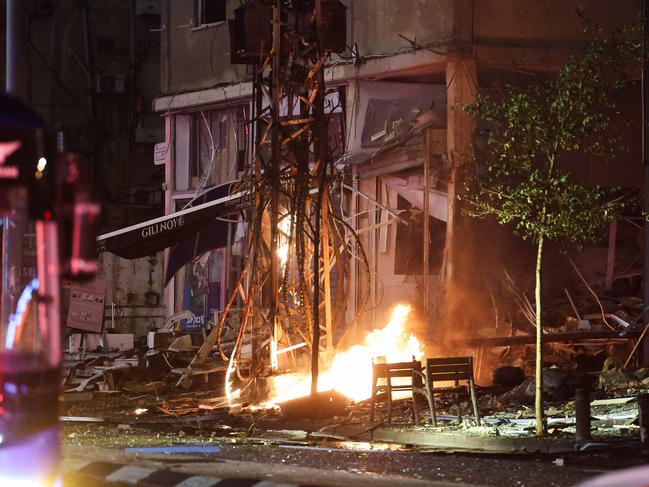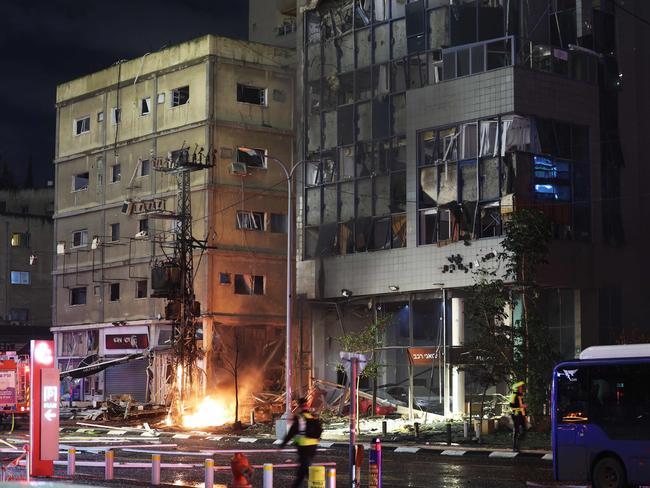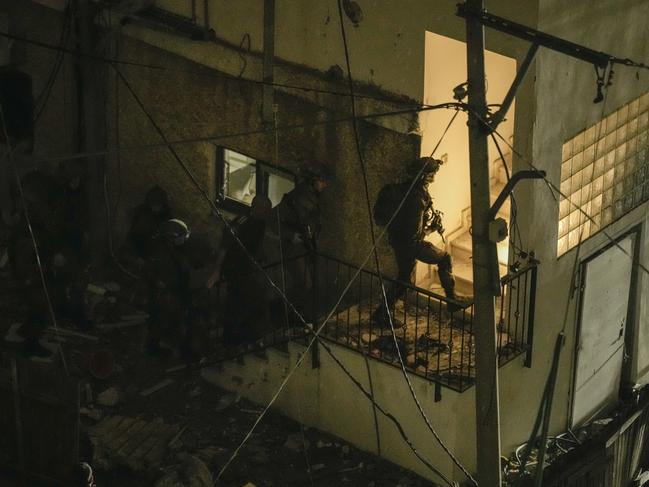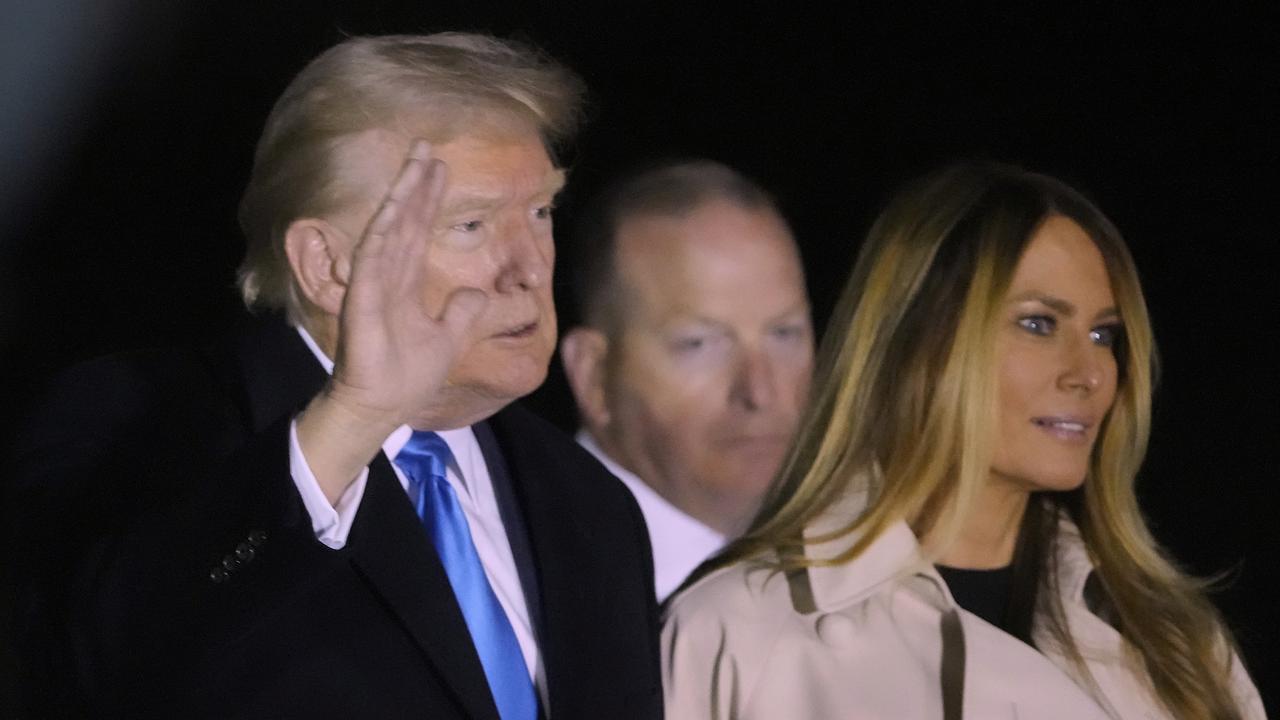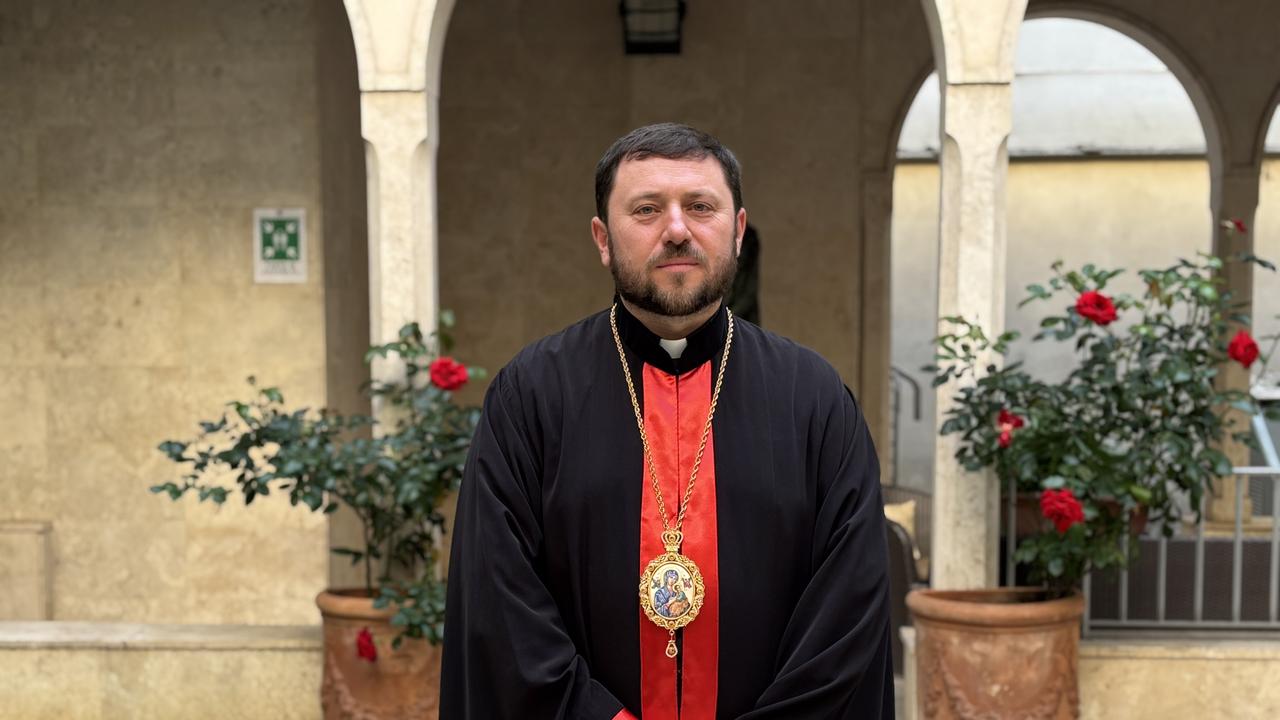Israel war: America vetos UN Gaza ceasefire vote due to lack of detail on hostage release
The Israeli military has warned more terror is on the way just hours after its warplanes bombarded several towns and villages south of the Lebanese capital. Follow the updates.
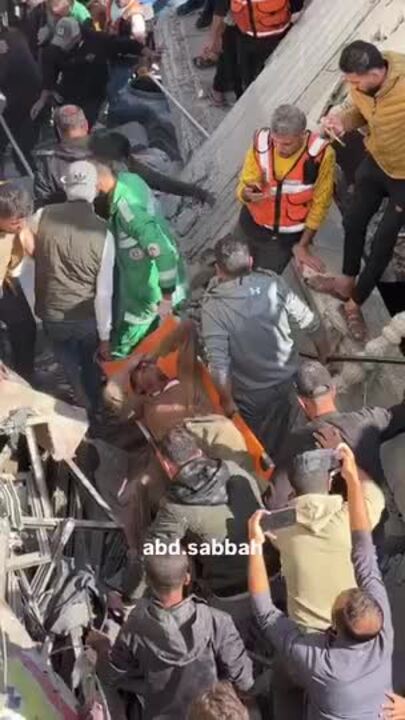
World
Don't miss out on the headlines from World. Followed categories will be added to My News.
Israel has bombarded southern Beirut and issued more evacuation orders as it intends to reign down more terror on Lebanon.
The bombardment in Beirut’s Haret Hreik quarter on Thursday was a “very violent raid”, according to Lebanon’s National News Agency.
Israeli warplanes also hit the building that the army threatened to bomb in the southern Lebanese city of Tyre, according to local media.
The building was located on Abu Dheeb Street and the attack caused severe material damage, the agency reported.
Earlier, residents in villages in southern Lebanon’s Tyre district had been told to flee their homes as Israel prepared to reign down more bombs in the area.
Israeli military spokesman Avichay Adraee issued the warning to residents of the Burj Shemali, Maashouq and al-Haush villages that they must evacuate immediately and move to the north of the Awali River.
He said in a statement on X that the Israeli army was planning to hit the areas.
Israeli warplanes bombarded several towns and villages in the Nabatieh region of southern Lebanon overnight.
One person was killed in an attack on the town of Rumin, while a young man was killed in an attack on the village of Kfarchouba, NNA reported.
Also on Thursday, judges at the International Criminal Court issued arrest warrants for Israeli Prime Minister Benjamin Netanyahu and his former defence chief, as well as a Hamas leader, Ibrahim Al-Masri, for alleged war crimes and crimes against humanity.
It follows ICC prosecutor Karim Khan’s announcement on May 20, that he was seeking arrest warrants for alleged crimes connected to the October 7, 2023 attacks on Israel by Hamas and the Israeli military response in Gaza.
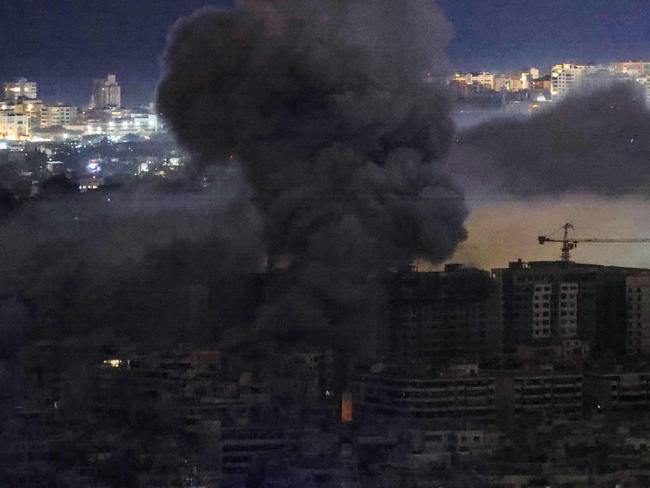
It comes as the United States on Wednesday vetoed a UN Security Council push to call for a ceasefire in Gaza that Washington said would have emboldened Hamas.
The resolution demanded “an immediate, unconditional and permanent ceasefire” in the war between Israel and the Palestinian group, along with “the immediate and unconditional release of all hostages.”
But Israel’s UN ambassador Danny Danon said the resolution “was not a path to peace, it was a road map to more terror, more suffering and more bloodshed.
“Many of you attempted to pass this injustice. We thank the United States for exercising its veto.”
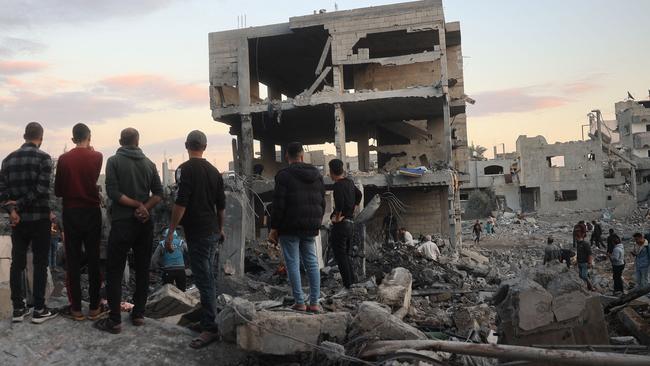
Robert Wood, deputy ambassador to the United Nations, said that the US position remained there had “to be a linkage between a ceasefire and the release of hostages.”
Since the beginning of the conflict, the Security Council has struggled to speak with one voice, as the United States used its veto power several times, although Russia and China have as well.
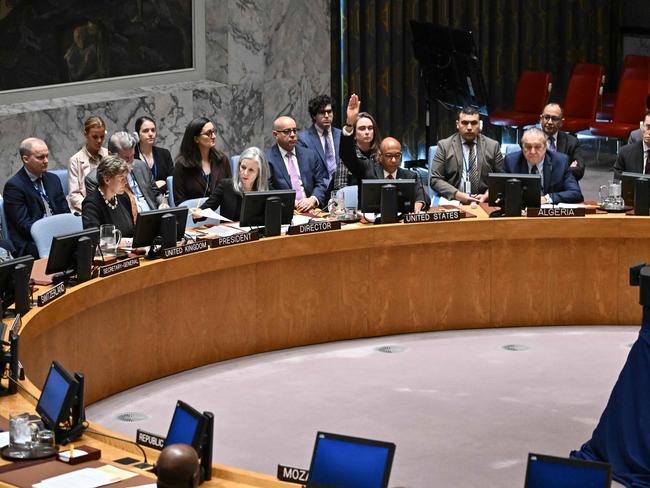
The move was slammed by Homans Rights Watch.
“Once again, the US used its veto to ensure impunity for Israel as its forces continue to commit crimes against Palestinians in Gaza,” a statement from Human Rights Watch read.
The resolution vetoed on Wednesday calls for “safe and unhindered entry of humanitarian assistance at scale,” including in besieged northern Gaza, and denounces any attempt to starve the Palestinians.
Palestinian ambassador to the United Nations Majed Bamya said Wednesday that “there’s no justification whatsoever for vetoing a resolution trying to stop atrocities.”
FOLLOW UPDATES BELOW:
NUCLEAR FEARS AS IRAN INCREASES URANIUM STOCK
European powers and the United States are moving ahead with a plan to censure Iran for its poor co-operation with the UN nuclear watchdog at this week’s board meeting, despite an offer by Tehran to cap its highly enriched uranium stock, diplomats told AFP.
Tensions between Iran and Western powers have repeatedly flared since a 2015 deal curbing Tehran’s nuclear program in exchange for sanction relief fell apart.
In recent years, Tehran has decreased its co-operation with the International Atomic Energy Agency (IAEA) by ramping up its nuclear activities, deactivating surveillance devices to monitor the nuclear program and barring UN inspectors.
A plan by Britain, France, Germany and the United States to submit a new resolution against Iran comes as concerns over the rapid expansion of its nuclear program heightened fears that Tehran might be seeking to develop a nuclear weapon.
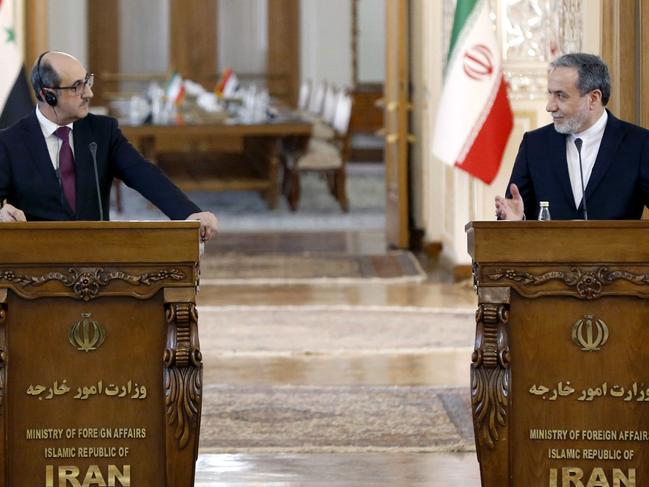
According to the IAEA, Tehran is the only non-nuclear weapon state to enrich uranium to 60 per cent, a short step from the 90 per cent level needed for atomic weapons.
Iran has always denied seeking a nuclear weapon.
But a confidential IAEA report seen by AFP showed that Iran has further increased its stock of highly enriched uranium in recent months.
Iran’s total stockpile of enriched uranium also grew to an estimated 6604.4kg as of October 26.
However, Iran pledged to halt the expansion of its highly enriched uranium stock during recent talks with the agency, and has since implemented preparatory steps to achieve that, the report said.
Following the report, a senior diplomat told AFP that Western powers would still go ahead with the resolution they plan to submit late on Tuesday local time, voicing “scepticism” about Iran’s “pretty disingenuous” last-minute offer to cap its stockpile.
Another senior diplomat said “based on past experience” the recent offer by Iran will probably “not stand” anymore once a resolution is tabled.
‘EXTREME CATASTROPHE’: GAZA HOSPITALS AT BREAKING POINT
The World Health Organisation expressed grave concern for hospitals still partly operating in war-stricken northern Gaza, where one hospital director described the situation as an “extreme catastrophe”.
“We are very, very concerned, and it’s getting harder and harder to get the aid in. It’s getting harder and harder to get the specialist personnel in at a time when there is greater and greater need,” WHO spokeswoman Margaret Harris told journalists in Geneva.
She said the organisation was “particularly concerned about Kamal Adwan Hospital” in Beit Lahia, where Israeli forces launched an offensive against Hamas and other Palestinian militant groups last month.
Kamal Adwan Hospital director Hossam Abu Safiyeh told AFP by phone: “The situation in northern Gaza is that of an extreme catastrophe.
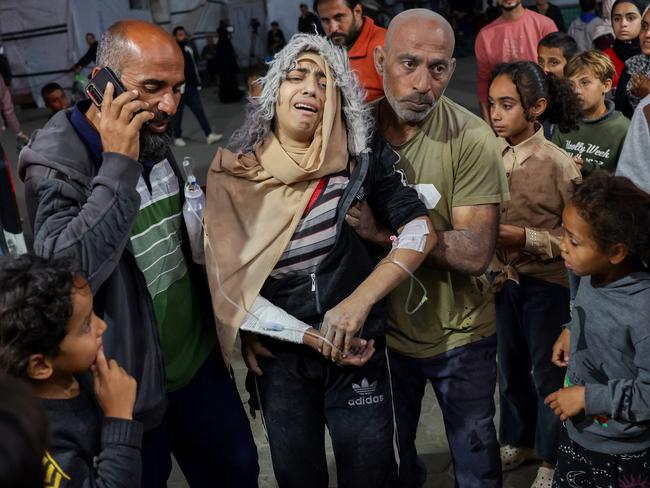
“We’re beginning to lose patients because we lack medical supplies and personnel,” he said.
Abu Safiyeh added that his hospital had been “targeted many times by the occupation forces, most recently” on Monday.
“A large number of children and elderly people continue to arrive suffering from malnutrition,” the doctor said.
He accused Israel of “blocking the entry of food, water, medical staff and materials destined for the north” of the Gaza Strip.
RUSSIAN WEAPONS IN HEZBOLLAH’S HANDS
Israeli troops are uncovering an increasing number of weapons stashes held by Hezbollah which were manufactured recently in Russia.
The Wall Street Journal reports the Israeli Defence Force operation into Beirut have uncovered troves which include Kornet antitank missiles made in 2020 among other newly manufactured Russian weaponry in alarming numbers.
Hezbollah, along with a number of other designated terror groups operating in the Middle East, often tote ageing Soviet-era arms.
However this is the first time modern Russian made weapons of this quantity have been found in the hands of Hezbollah.
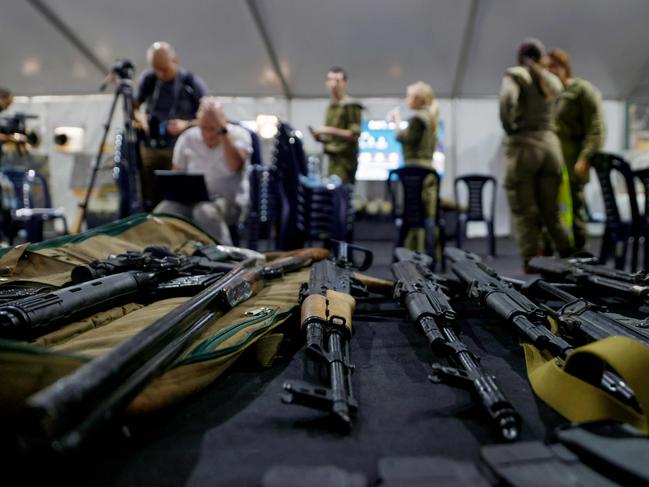
Russia has funnelled arms to nearby Syria for many years, both supplying the Syrian military as well as maintaining their own stockpiles located in the Arab nation.
Former Israeli ambassador to Russia and now senior researcher at the Institute for National Security Studies in Tel Aviv, Arkady Mil-Man, told the Journal he believes Israel should speak up about the discoveries.
“Israel needs to be more assertive and defend its interests,” Mr Mil-Man said.
“We must explain and convey to the Russians that we will no longer stand any assistance to Hezbollah and Iran that could hurt Israelis.”
NETANYAHU VOWS TO HIT HEZBOLLAH EVEN AFTER A LEBANON TRUCE
Israeli Prime Minister Benjamin Netanyahu said that Israel will continue to operate militarily against the Iran-backed Lebanese armed movement Hezbollah even if a ceasefire deal is reached in Lebanon.
“The most important thing is not (the deal that) will be laid on paper,” Mr Netanyahu told the Israeli parliament.
“We will be forced to ensure our security in the north (of Israel) and to systematically carry out operations against Hezbollah’s attacks … even after a ceasefire”, to keep the group from rebuilding, he said.
US special envoy Amos Hochstein arrived in the Lebanese capital on Tuesday for talks with officials on a truce plan, which Lebanon has largely endorsed, to halt the Israel-Hezbollah war
Mr Netanyahu also said there was no evidence that Hezbollah would respect any ceasefire reached.
Mr Hochstein is expected to travel to Israel on Wednesday.
“We will not allow Hezbollah to return to the state it was in on October 6, 2023,” the eve of the strike by its Palestinian ally Hamas into southern Israel, he said.
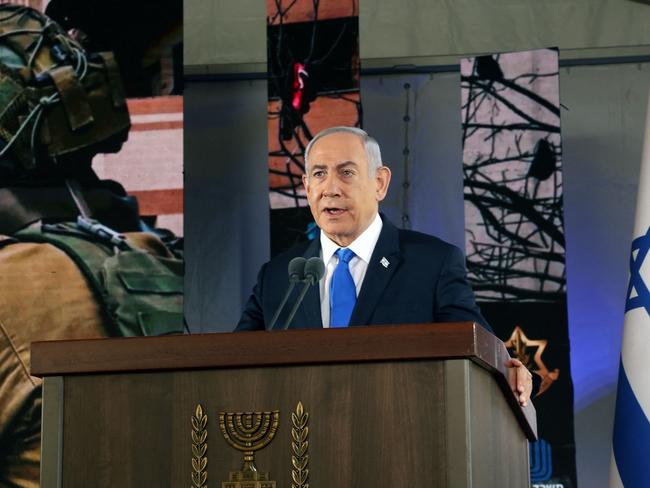
‘NO PLAN B’: UNRWA HITS OUT AT BAN
The head of the UNRWA said there is no alternative following Israel’s order to ban the organisation that coordinates nearly all aid in war-ravaged Gaza.
“There is no plan B,” Philippe Lazzarini told reporters in Geneva.
Within the UN family, “there is no other agency geared to provide the same activities”, providing not only aid in Gaza, but also primary health care and education to hundreds of thousands of children,” he said.
“If you are talking about bringing in a truck with food, you will surely find an alternative,” he said, but “the answer is no” when it comes to education and primary healthcare.
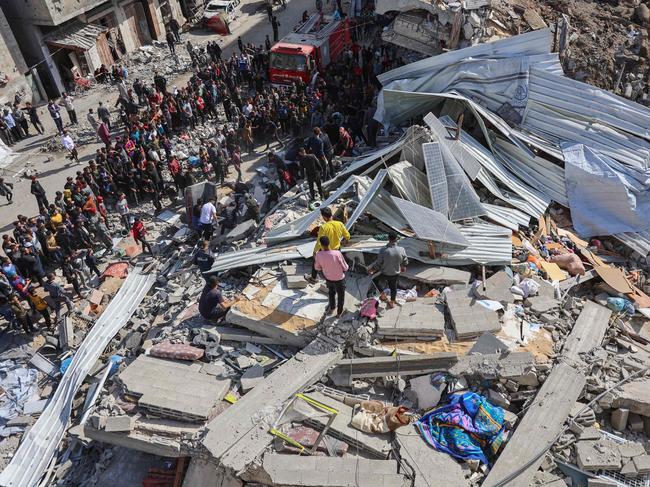
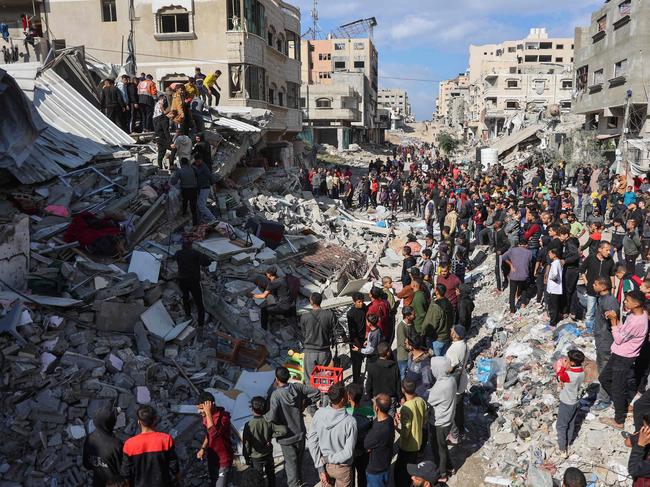
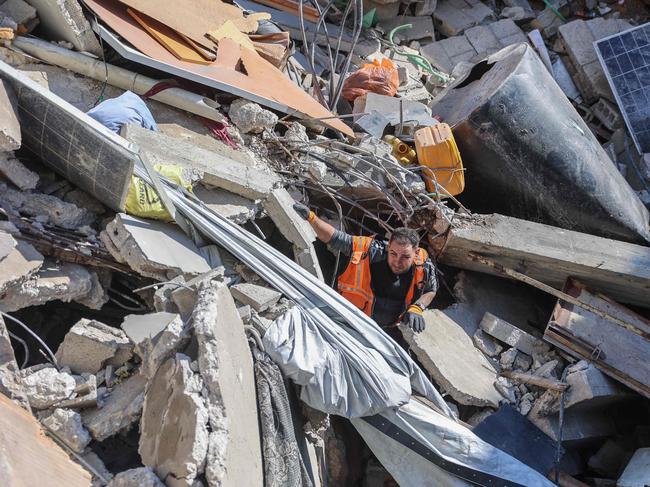
He called on the UN, which created UNRWA in 1949, to prevent the implementation of a ban on the organisation in Israel and occupied east Jerusalem, which was approved by the Israeli parliament last month.
The ban is due to take effect at the end of January.
The ordered suspension of the agency sparked global condemnation, including from key Israeli backer the United States.
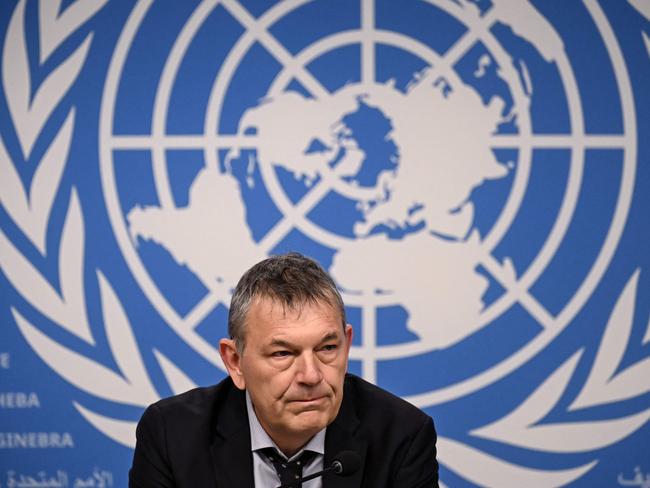
UNRWA provides assistance to nearly six million Palestinian refugees across Gaza, the West Bank, Lebanon, Jordan and Syria.
Lazzarini cautioned that a halt to UNRWA’s activities in Israel and East Jerusalem would block it from co-ordinating massive aid efforts inside Gaza.
“This would mean we could not operate in Gaza … and thus the environment would be much too dangerous,” he said.
If UNRWA ceases to operate, he warned, the responsibility for providing all the services it has provided until now “will come back to the occupying power, being Israel”.
FIVE KILLED AFTER STRIKE ON BEIRUT SUBURB
Lebanon’s health ministry said Israel struck a densely packed Beirut neighbourhood on Monday local time, killing five people, in the third attack in two days on the city’s central districts.
“The Israeli enemy strike on Zuqaq al-Blat in Beirut killed five people and injured 24,” a ministry statement said, giving an updated death toll.
The official National News Agency (NNA) said an apartment near a Shiite Muslim place of worship had been targeted.
“A hostile drone targeted a residential apartment behind the Husseiniya of Zuqaq al-Blat in the capital Beirut, causing great damage,” the NNA said.
The air strike was not preceded by a warning from the Israeli military to evacuate.
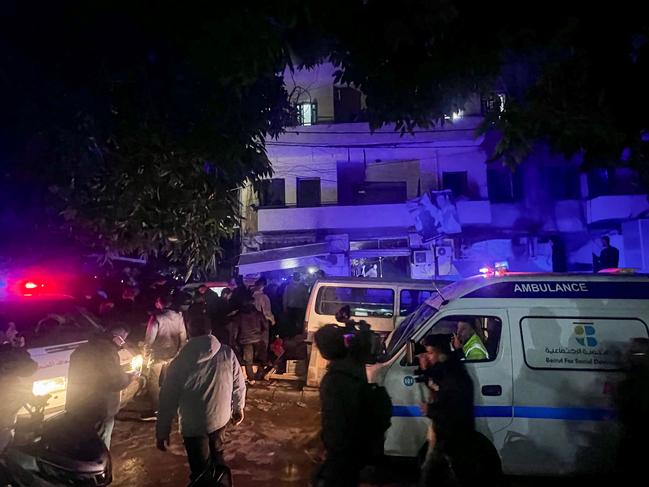
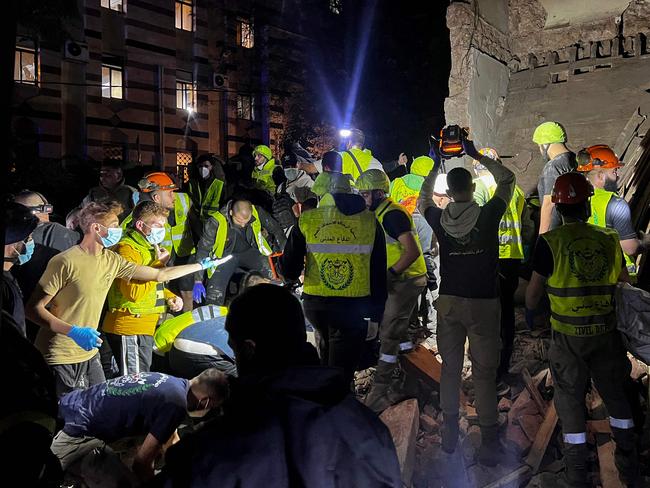
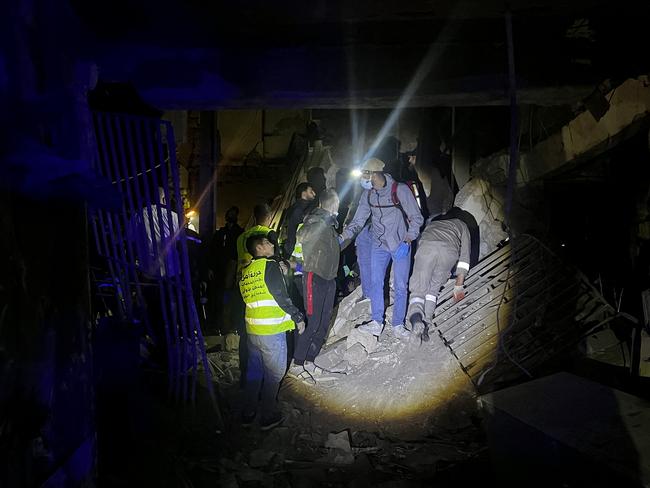
DAMAGE IN TEL AVIV AFTER ROCKET ATTACK
Five people were injured following a Hezbollah missile attack on central Israel.
The IDF said one missile was fired from Lebanon in the attack, which was intercepted by air defences.
Fragments from the interception impacted between two Tel Aviv suburbs, causing a fire and damage to surrounding buildings and vehicles, The Times of Israel reported.
More Coverage
